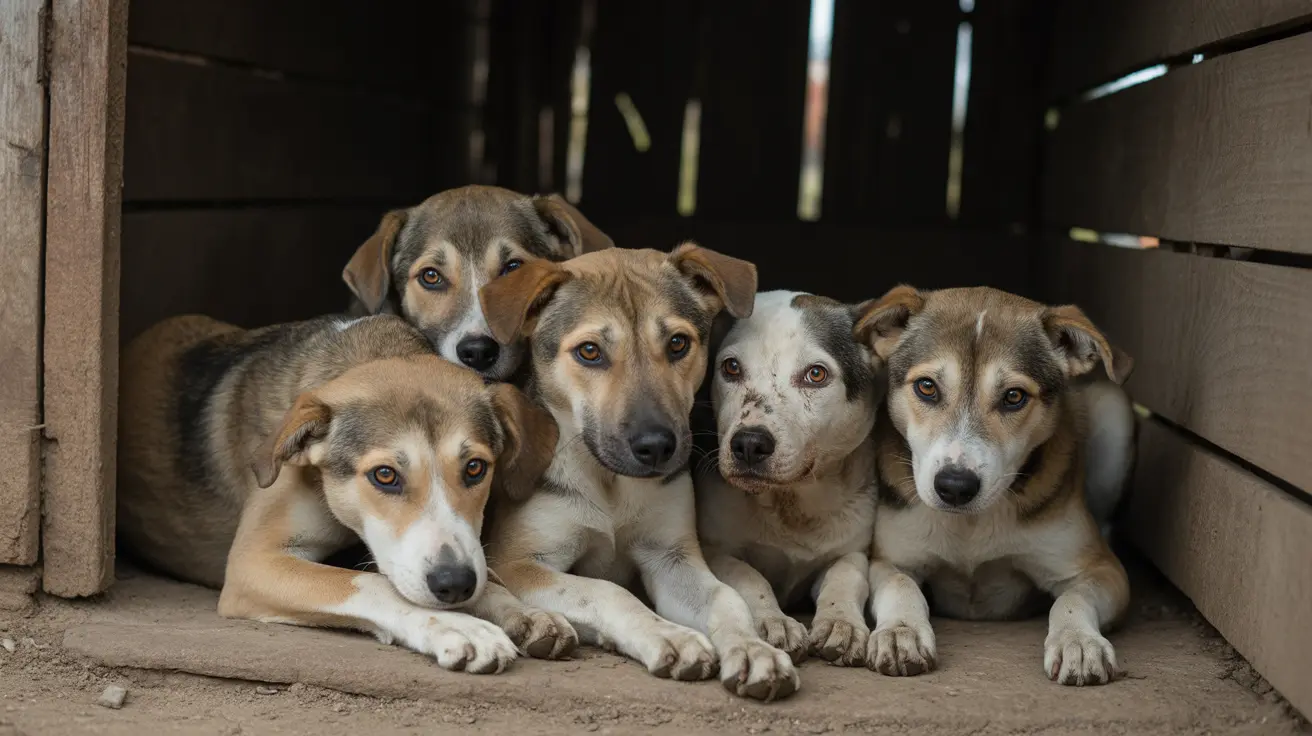If you've ever noticed your furry friend letting out a sneeze during petting sessions, you're not alone. Dogs sneezing when being petted is a common occurrence that often leaves pet owners wondering about its significance. While this behavior can be perfectly normal, understanding the various reasons behind it can help ensure your pet's well-being.
In this comprehensive guide, we'll explore the fascinating reasons behind your dog's sneezing during petting sessions, when it's completely normal, and when it might signal something that needs attention.
Common Reasons Why Dogs Sneeze During Petting
Play and Communication Sneezing
Dogs often use sneezing as a form of social communication, particularly during playful or exciting interactions. When you're petting your dog, these "play sneezes" can indicate happiness and excitement. It's their way of telling you they're enjoying the attention and maintaining a positive interaction.
Emotional Response
Just like humans might laugh or smile when happy, dogs may sneeze when experiencing positive emotions. During petting, your dog might be expressing pure joy through these reflexive sneezes, especially if they're particularly excited about the attention they're receiving.
Physical Triggers During Petting
Nose Stimulation
The physical act of petting can sometimes trigger a sneeze response, especially if you're touching near your dog's face or muzzle. Their sensitive nose might react to the slight movement or pressure changes caused by your hand movements.
Environmental Factors
Petting can stir up dust, dander, or other particles in your dog's fur, which might trigger a sneeze. This is particularly common if your dog has recently been outdoors or hasn't been groomed recently.
When to Monitor Your Dog's Sneezing
Signs of Potential Concerns
While most petting-related sneezing is harmless, certain symptoms warrant attention:
- Excessive or violent sneezing
- Nasal discharge, especially if colored or bloody
- Facial swelling or pain
- Changes in eating or breathing patterns
- Persistent sneezing even when not being petted
Medical Considerations
Sometimes, sneezing during petting might coincide with underlying issues such as:
- Nasal infections
- Allergies
- Foreign objects in the nasal passage
- Dental problems affecting the nasal cavity
Frequently Asked Questions
Why does my dog sneeze when I pet him?
Dogs typically sneeze during petting as a form of communication, expressing excitement or happiness. It can also be a physical response to touch near their sensitive nose area or to particles disturbed during petting.
How can I tell if my dog's sneezing is due to allergies or something more serious?
Allergy-related sneezing usually occurs alongside other symptoms like itching, watery eyes, or skin irritation. If sneezing is accompanied by colored nasal discharge, lethargy, or loss of appetite, consult a veterinarian.
What should I do if my dog starts sneezing persistently after being outdoors?
Check their nose for visible irritants or foreign objects. If sneezing persists for more than a few hours or is accompanied by distress, seek veterinary attention to rule out potential issues like nasal foreign bodies or infections.
Are there any home remedies to help reduce my dog's sneezing caused by environmental irritants?
Regular grooming, using air purifiers, and keeping your home dust-free can help. However, avoid using human remedies without veterinary approval, as these might harm your pet.
How often should I take my dog to the vet if they frequently sneeze during play or petting?
If sneezing only occurs during excitement or petting and your dog seems otherwise healthy, routine annual check-ups are sufficient. However, if sneezing becomes excessive or is accompanied by concerning symptoms, schedule a veterinary visit promptly.
Conclusion
While dogs sneezing during petting sessions is usually a harmless and even endearing behavior, being aware of normal versus concerning patterns helps ensure your pet's health. Pay attention to the context and any accompanying symptoms, and don't hesitate to consult your veterinarian if you notice unusual changes in your dog's sneezing patterns.






